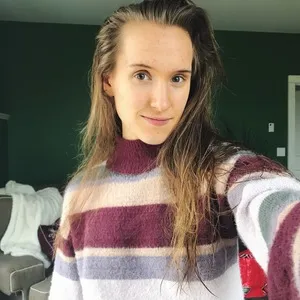According to an article by TakeOut, sales of non-alcoholic beverages have increased around 3.9% while sales in beer and wine have flatlined over the past few years. Companies like Coca-Cola have jumped on the ABV-free bandwagon, and more products are expected to hit the market in the coming months. But what exactly is causing this shift in consumer behavior, and what does it mean for ABV-free’s future?
Who’s to blame?
A 2018 report claimed that millennials (born between 1981 and 1996) and GenZ (born between 1996 and 2010) are drinking 20% less alcohol than their baby boomer and GenX parents. So, we can add alcohol to the list of things (including real estate, cars, and fine china sets) that the young people have “killed.” Although younger generations are some of the least likely to drink, the global rate of alcohol consumption is decreasing; over half of the global population above fifteen years old is estimated to be alcohol free. It is estimated that around 12.5% of the global population has not had a drink in the past twelve months.
Social researchers claim that younger generations have a greater focus and presence on social media; they’re aware that what they post can be seen and shared by anyone. And letting your future boss watch you shotgun three Bud Lights in a row in a dorm bathroom? That’s just not cool.
The internet age hasn’t just created more potential for social sharing, but information sharing as well. Young people are more aware of the health complications of drinking than their parents, so they’re more apt to avoid behaviors that potentially put their health at risk. As a whole, millennials and GenZ also engage in health-preventative activities, such as going to the gym, doing mindfulness exercises, and drinking a whole ‘lot of green juice.
Moreover, the choice to drink might come down to dollars and cents for young folx. At $6 a beer or $13 for a cocktail, drinking is undoubtedly an expensive habit to break. Current generations have statistically less wealth accumulated than their parents so frugality is a form of survival.
Is this the end of vice as we know it?
Uhh, no.
The dramatic market expanse of CBD has created more niche opportunities for young people to indulge in vice without the same risks as alcohol. Although there’s no science yet about how much of an impact legalized marijuana and CBD products have on drinking behavior, I can’t help but assume that many young people perceive marijuana as less risky than alcohol. CBD products are also still in their infancy, so many people view them as being ~foreign~ and worthy of their time. And in a time with a downright shameful housing market, looming threats of global climate instability, and a president with the mental acuity of a fifth-grader, should we even be surprised that young people need a way to relax?
But what would a college town look like without the bars?
Bars aren’t expected to close any time soon, but you might expect to see more ABV-free options coming to a bar near you. Vermont’s Zero Gravity brewery is just one local company experimenting with ABV-free products; they’re expected to launch ABV-free beer offerings before the end of the year. In the meantime, many bars are offering Seedlip: a distilled beverage filled with spice and ornately-crafted flavors.
ABV-free social spaces are also becoming more popular in cities across the world. Getaway in Brooklyn is just one example of how businesses are capitalizing on consumers’ desire to feel included, just without alcohol involved. Sans Bar in Austin offers a similar experience complete with rosemary and ginger mules and “sans-garitas:” a mock-tail made with apple cider vinegar, lime, and agave.
What are the potential benefits to becoming ABV-free?
Speaking in terms of health, the benefits of ditching alcohol are well-documented: lower risk of cancer, lower risk of obesity, improved mental clarity and functioning, lower risk of degenerative kidney diseases caused by excess alcohol consumption, and more stable mood. Not to mention the best perk of ABV-free living: no more hangovers.
As someone committed to an ABV-free lifestyle, I can tell you that the social and emotional benefits are also worthy of consideration. I feel more comfortable with my friends when alcohol isn’t involved, and I value the opportunity to feel included in environments where drinking is common, like college parties. Over time, I’ve felt less and less obligated to explain to people why I choose ABV-free. After all, people can make their own decisions regarding their behaviors; it’s not my place to act as the “alcohol police.”
What should you consider when choosing an ABV-free drink?
For those considering calories, make sure to read the label before you pick a drink. Although many ABV-free options are lower in calories than their alcoholic counterparts, they might contain significantly more sugar and preservatives. If you’re drinking out, always ask your bartender for recommendations and drink ingredients before ordering.
Here are five ABV-free brand recommendations by Women’s Health Magazine. Cheers to that!


